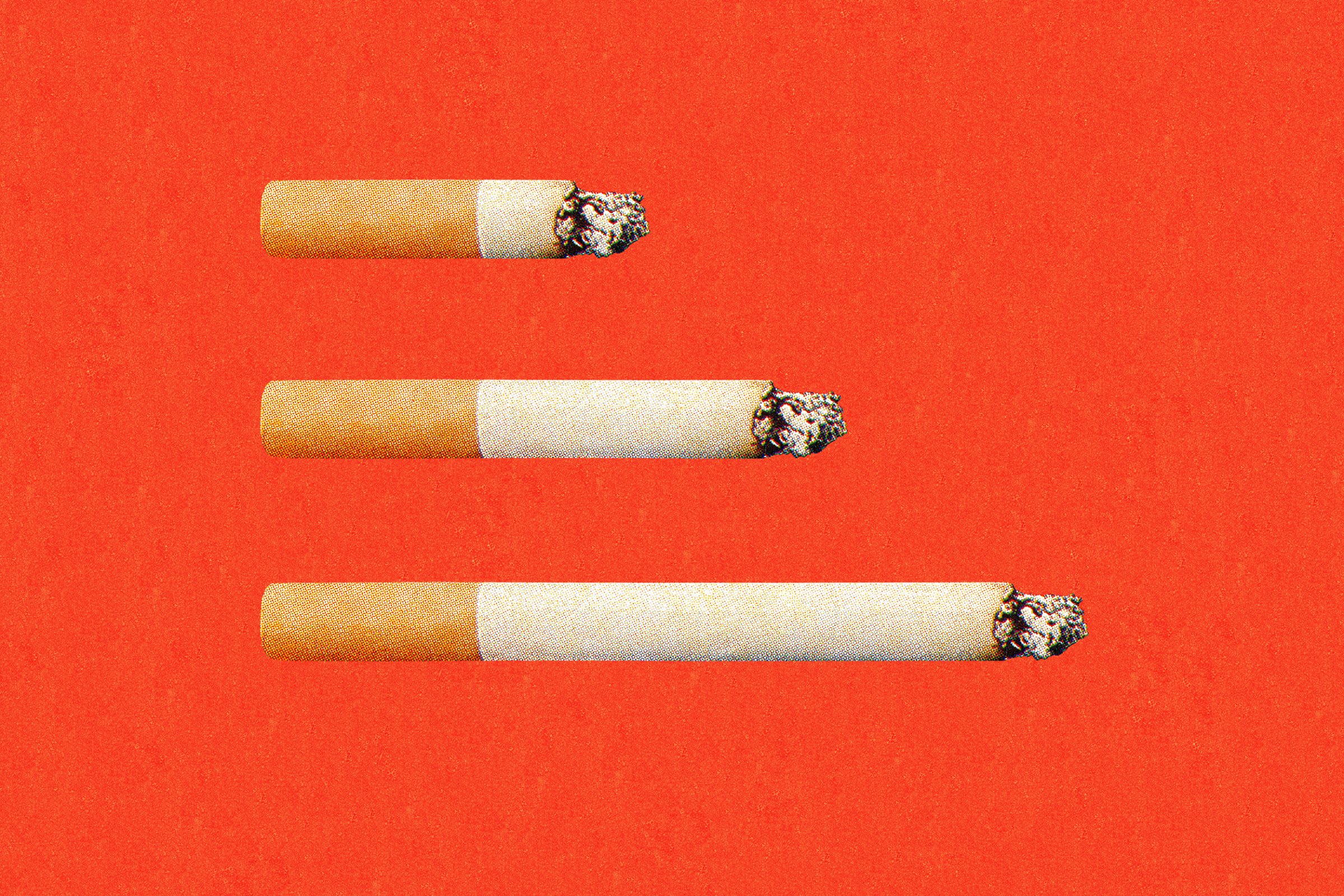
Researchers have long sought for answers on the best way to help people quit smoking. Often, it comes down to two options: quitting cold turkey or gradually tapering a smoking habit. But which one works better?
“A lot of people think that the common sense way to give up smoking is to reduce the amount they smoke before quitting,” says Nicola Lindson-Hawley of the University of Oxford, who led a new study published in the journal Annals of Internal Medicine.
But the results suggested just the opposite: quitting cold turkey is best.
Lindson-Hawley and her colleagues looked at almost 700 people in England who smoked at least 15 cigarettes a day but who were planning to quit. They all set a quit date for two weeks. Half of them were randomly assigned to smoke normally until their quit date, then to stop abruptly. The other half gradually reduced their smoking over the two weeks leading up to the appointed day. Both groups had behavioral counseling, nicotine patches and nicotine replacement therapy from products like gum, lozenges and mouth spray.
The way the researchers measured success was by looking at smoking abstinence for four weeks after the quit date, and then six months later.
Those who quit abruptly stuck to it the best—about 25% better than the gradual-cessation group. And 49% of the abrupt group were successful, while 39% of the gradual group were.
At the half-year mark, 22% of the cold-turkey group were still smoke-free, while 15% of the gradual group were.
Interestingly, more people said they preferred to quit gradually rather than abruptly. But a person’s preferences didn’t make much of a difference in their success. “Even if people wanted to quit gradually, they were more likely to quit if they used the abrupt method,” Lindson-Hawley says.
The research didn’t look at other potential forms of smoking cessation, including e-cigarettes, which have yet to be definitively proven as an effective smoking cessation tool. And even though quitting cold was better, Lindson-Hawley says, “the quit rates we found in the gradual group were still quite good.” In future research, she plans to explore the methods of gradual quitting to see if they can be made more effective. “If there are people who really feel they can’t quit abruptly, and they want to quit gradually—otherwise they won’t try to quit at all—we still need to support them to do that.”
More Must-Reads from TIME
- Why Biden Dropped Out
- Ukraine’s Plan to Survive Trump
- The Rise of a New Kind of Parenting Guru
- The Chaos and Commotion of the RNC in Photos
- Why We All Have a Stake in Twisters’ Success
- 8 Eating Habits That Actually Improve Your Sleep
- Welcome to the Noah Lyles Olympics
- Get Our Paris Olympics Newsletter in Your Inbox
Write to Mandy Oaklander at mandy.oaklander@time.com